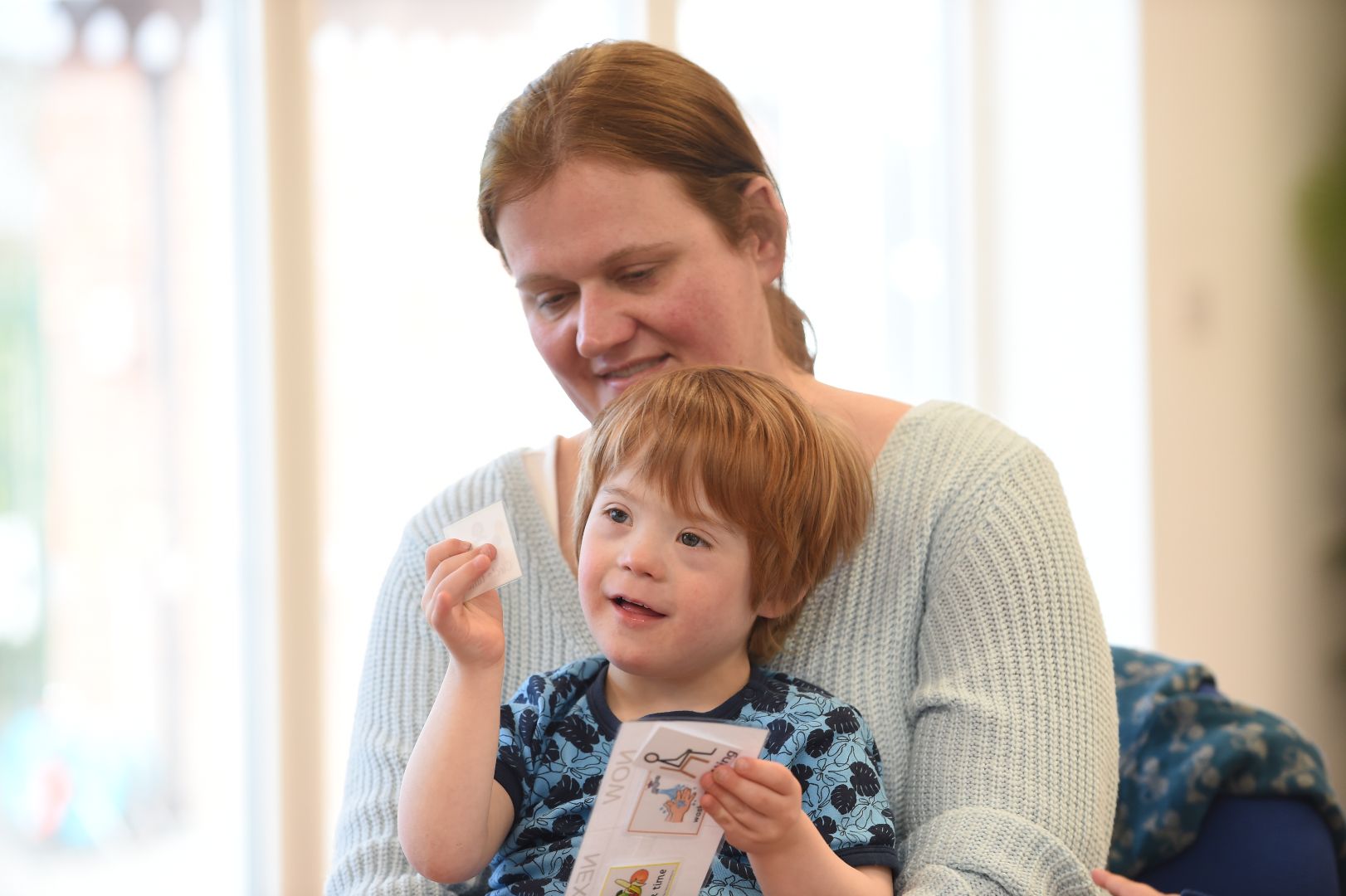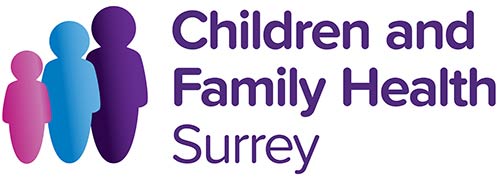
By the time they start school, children should be able to understand simple who , what and where questions and talk in sentences so that people can understand them.
They should also enjoy playing, listening to stories, joining in with nursery rhymes and having conversations.
Please try the ideas in the sections below about how you can help your child be speech and language ready for school.
You can find useful websites and further information on the Speech and Language therapy webpage.
- Focus your child’s attention before giving an instruction.
- Use shorter sentences
- Use gesture to support what you are saying
- Create an environment with less distractions e.g. reduce background noise such as television and radio
- Encourage your child to finish an activity before moving on
- Encourage your child to find things for you during everyday tasks, e.g. getting dressed, going shopping, putting toys away
- Visit the attention and listening webpage for more tips
- Follow your child’s lead see what your child is interested in playing with and play with that, rather than you choosing the toy
- Don’t ask lots of questions, comment on what your child is doing rather than interrupting play with questions e.g. ‘dolly’s having a drink’ NOT ‘what is dolly doing?’
- Keep language simple, match what you say to your child’s language level, so if they are using one or two words (e.g. “teddy drinking”), you use two to three words (“yes - teddy drinking juice”)
- Model without directing play alongside but don’t force your child to do something different. If play is repetitive e.g. train up and down, get another train and do something different with it e.g. going over a bridge, through a tunnel, they are more likely to copy if they don’t feel forced to change what they are happy doing
- Visit the play webpage for more tips.
- Make eye contact, face your child and bend down to their level before you start talking to them. Make your face more interesting to look at by exaggerating emotions on your face
- Make activities fun. Your child will only be interested in attending to things if they are fun and interesting. If you give the impression that the activities are fun, the child is likely to think they are fun too.
- Ask your child whether they are listening before giving them an instruction
- Point out how characters on the television are feeling. Discuss how you know this
- Praise good use of the skills you are working on e.g. “good looking”
- Use visual prompt cards to reinforce the skill you are targeting
- Make behaviour expectations clear and consistent e.g. making the child aware of not hugging everyone
- Visit the social skills webpage for more tips.
- Model the correct grammar: repeat back the sentence using adult grammar. This helps your child learn how the sentence should be said e.g. child: "At school today the computer breaked", adult: "Oh, at school the computer broke". Child: "Cut stick", adult: "Cutting and sticking".
- Expand on what your child says: add one piece of extra information e.g. child: "Man tree", adult: "The man is climbing up the tree".
- Offer a choice: give your child a choice of what to play with/eat/drink/wear. Adapt to your child’s level of language e.g. child: "Jumper or t-shirt?", adult: "Do you want the red jumper or the yellow jumper?"
- Open questions: avoid questions requiring a one word answer, such as "Are the children playing on the slide?" Instead ask "What is happening in the playground?" Your child can then respond with a sentence such as "The children are playing on the slide"
- Sentence completion: start a sentence for the child to finish e.g. adult: "The man is sitting…", child: "on top of the house".
- Increase independence: for older children, repeat back your child’s sentence the way that they have said it and ask them to think of one way they could improve it.
- Visit the sentence building webpage for more tips.
- Emphasise new vocabulary in meaningful ways e.g. “peel” when peeling a banana
- Use pictures and objects to introduce new words
- Use short and simple language, so your child is more likely to understand the new word
- Do not ask your child to repeat the words after you. If they do say the word, accept what they say, how they say it and give lots of praise for the attempt (the pronunciation is not important at this moment)
- Avoid asking “what’s that?” Tell the child what the item is called
- Use repetition. Children need to hear words many times before remembering them.
- Do not teach two related concepts at the same time e.g. "in/out" when describing. Use "in" and "not in" until "in" has been fully consolidated before focusing on another concept
- Visit the vocabulary webpage for more tips
- Eye contact: when you talk to your child, make sure you get your child’s eye contact first. Face your child and bend down to their level
- Help your child to listen: e.g. comment when you hear noises like the doorbell, dogs barking, birds singing. Try to have time without the TV or radio on so that the child can listen to other sounds
- Praise: always praise your child when s/he has said a word clearly
- Avoid directly correcting the speech of children with speech difficulties. Instead, make a point of speaking slowly and clearly and make sure your child is looking at you when you talk. Always repeat back wrongly pronounced words to your child so they hear the correct pronunciation.
- Let your child know when s/he is not understood: If you do not understand, let your child know this. Encourage him/her to clarify, using one or more of the following strategies:
- saying it again louder
- repeating just the words that you did not understand
- show what s/he is saying using gesture or pointing
- asking someone else to interpret (best friend or sibling)
- ask a forced choice question such as "Are you talking about assembly or play time?" "Is it something that happened today or yesterday?"
- Visit the speech sounds webpage for more tips.
If you are concered about your child's language or speech, please talk to your child's pre-school or nursery, or contact our Surrey-wide 0-19 Advice Line on 01883 340 922. The advice line is available from 8am to 5pm, Monday to Friday (excluding bank holidays) and provides support on all aspects of child health, development and parenting from birth up to 19 years of age.
If you wish to refer your child to the Speech and Language Therapy service, please visit our One Stop Referral Service page.

